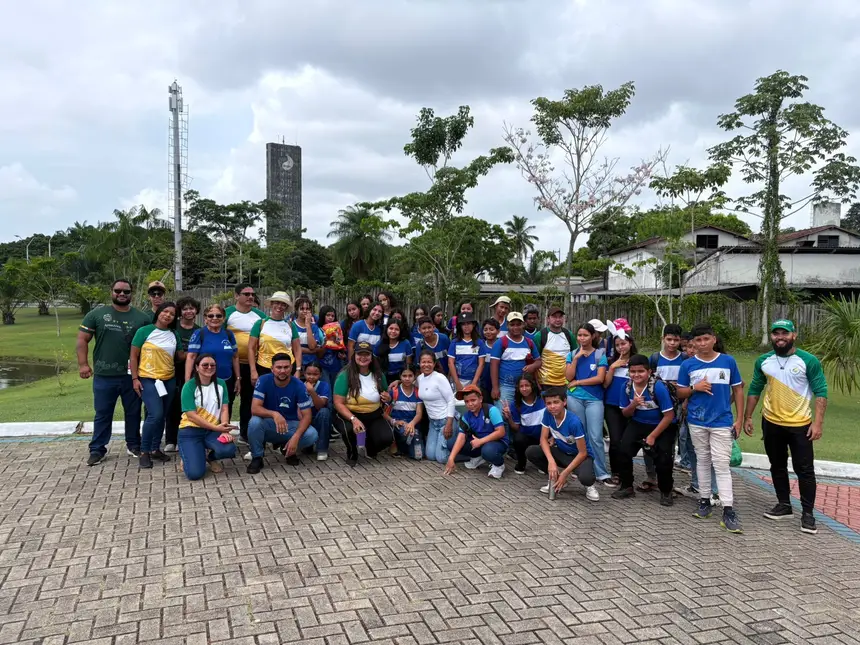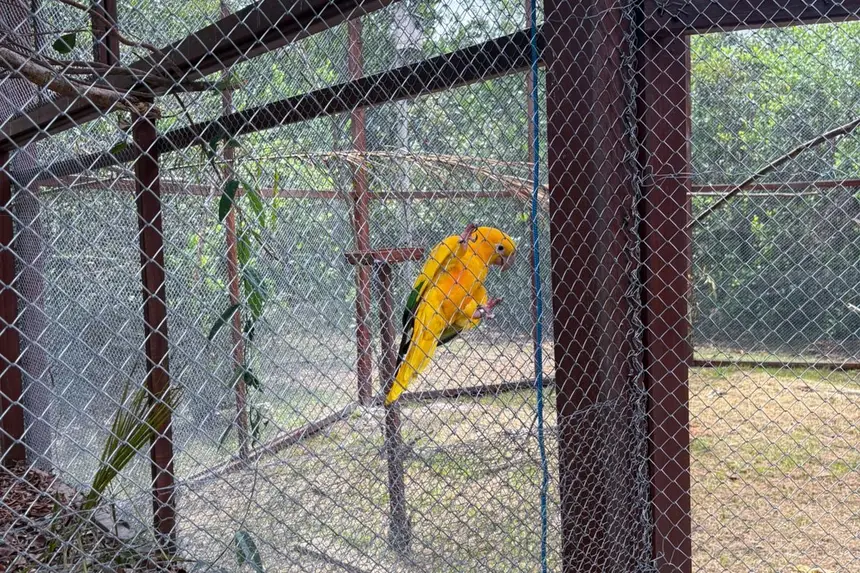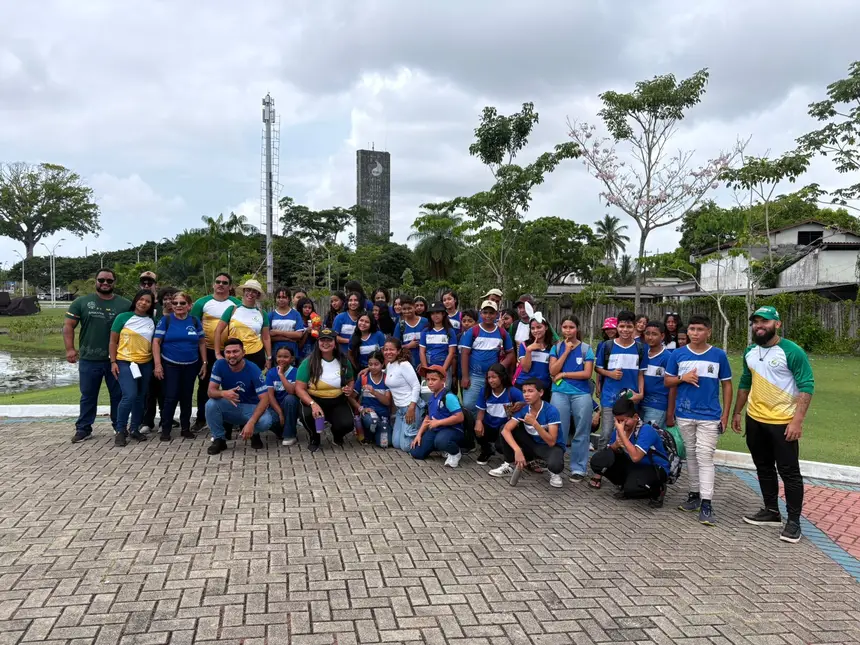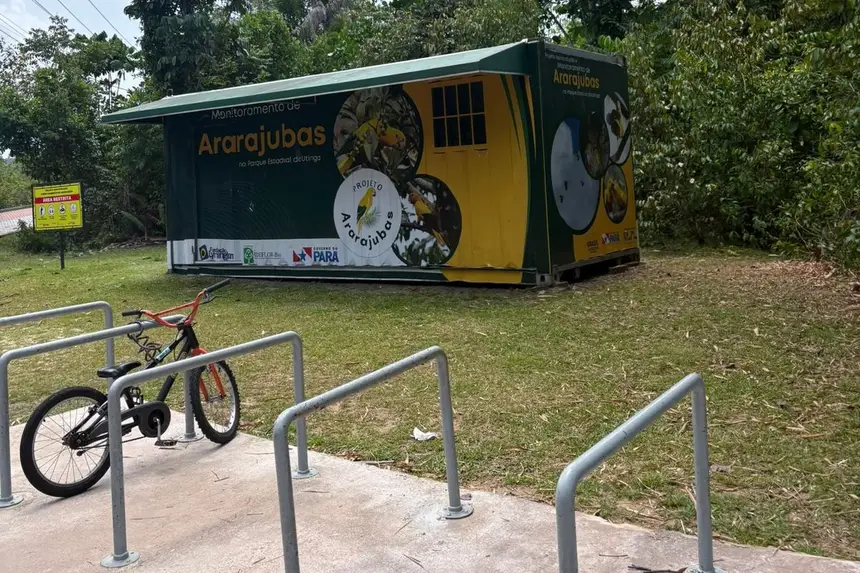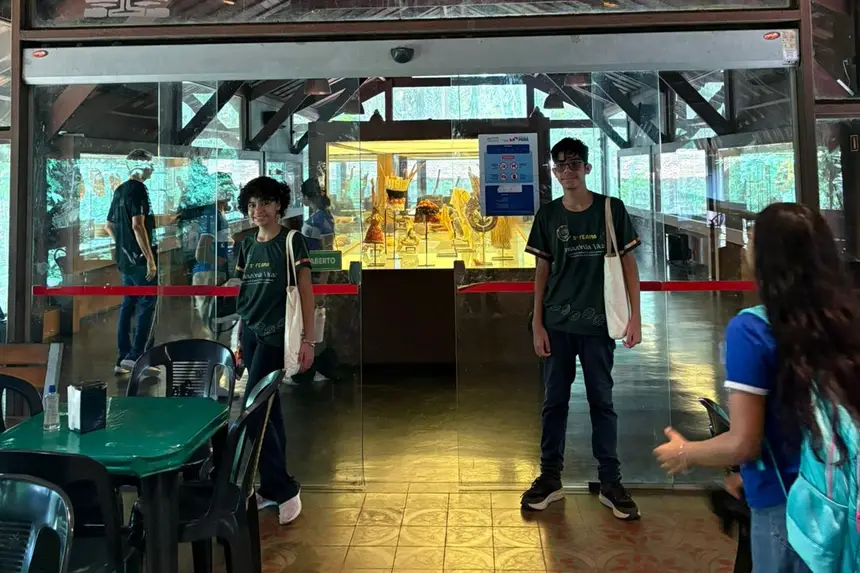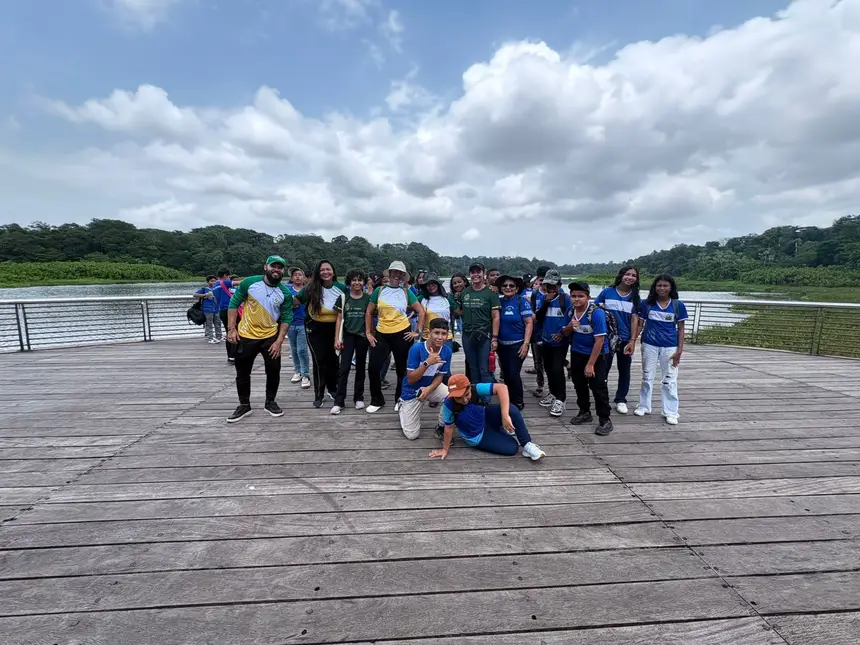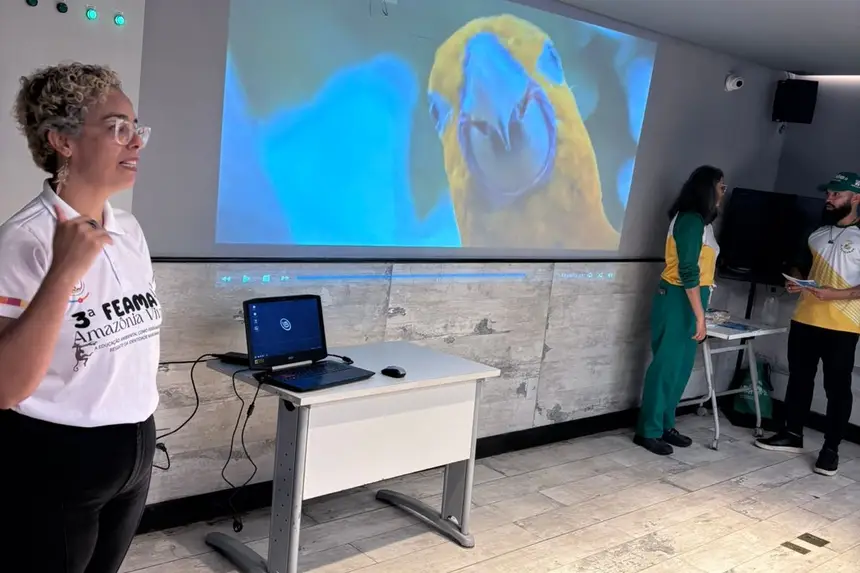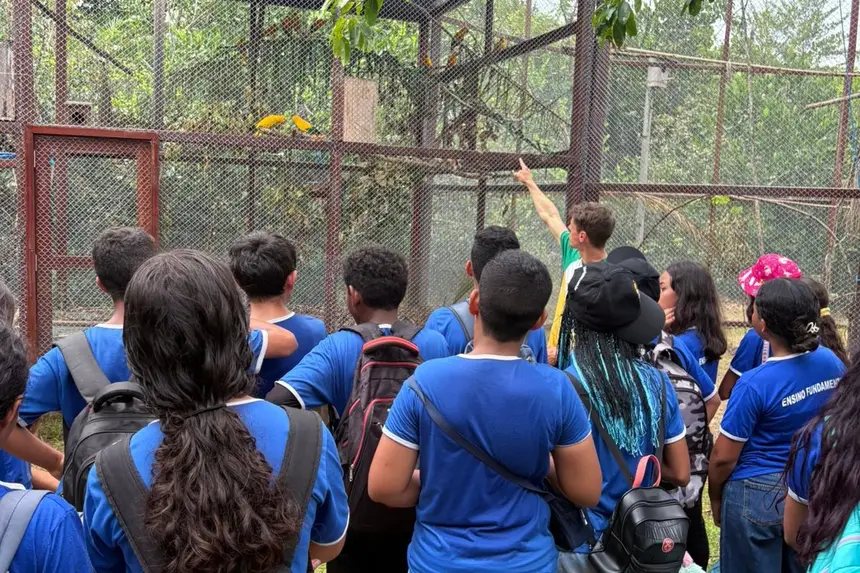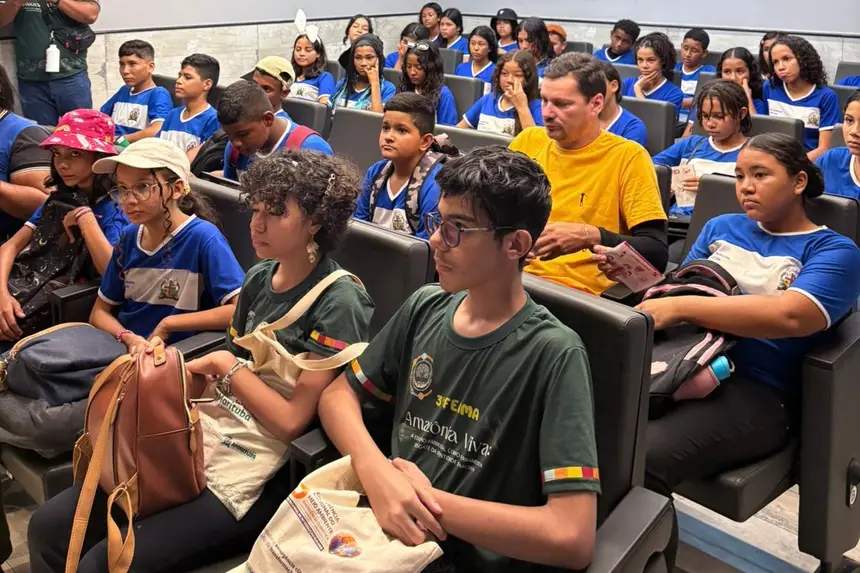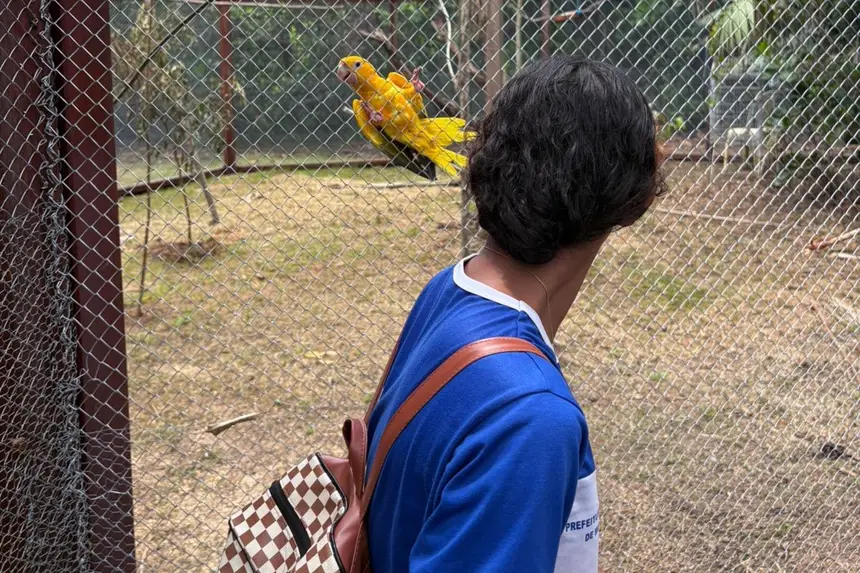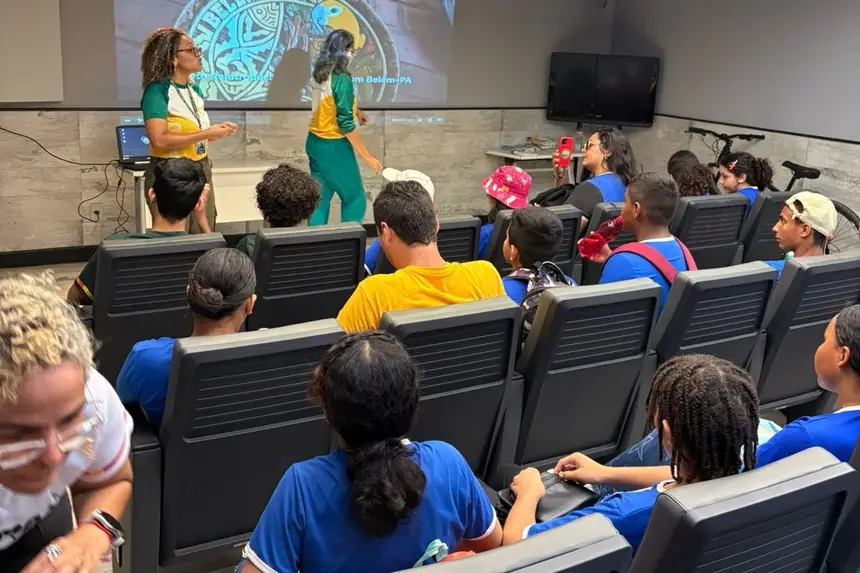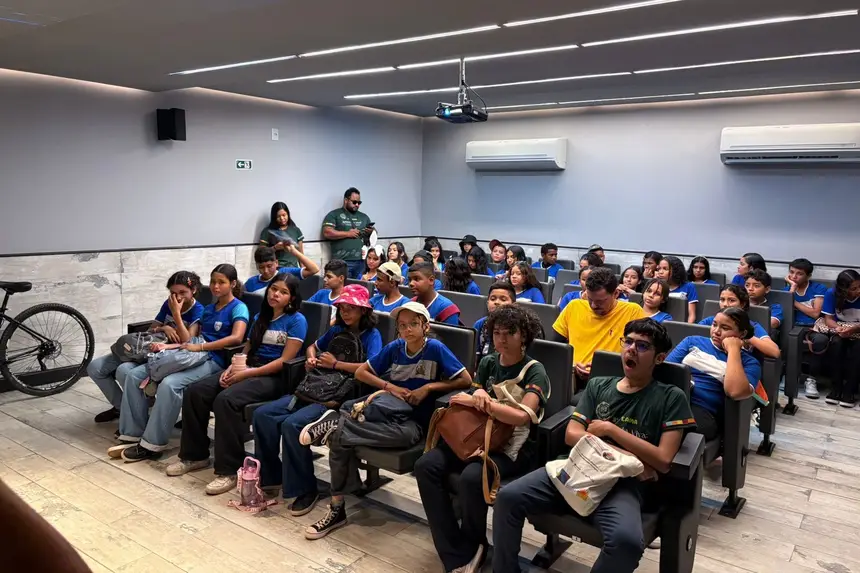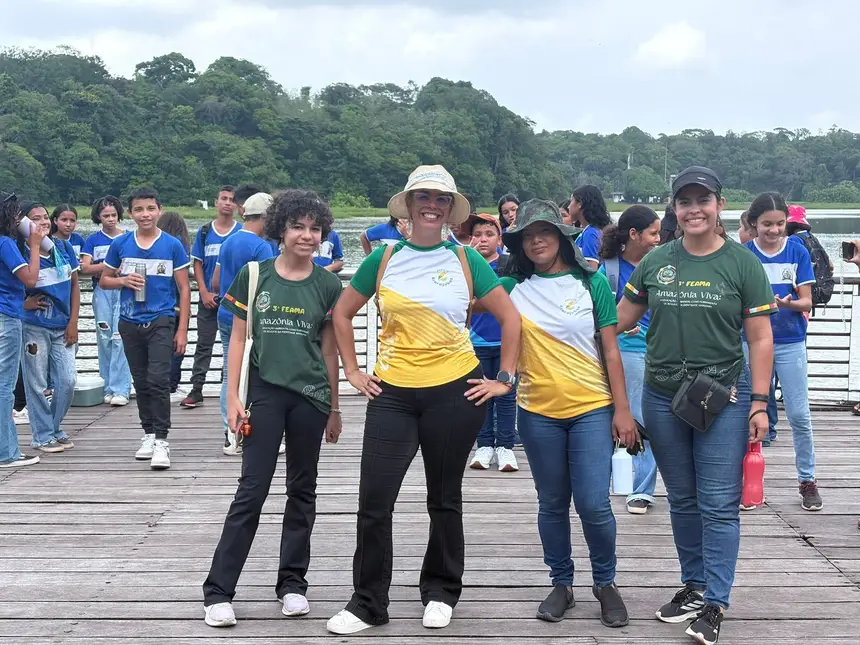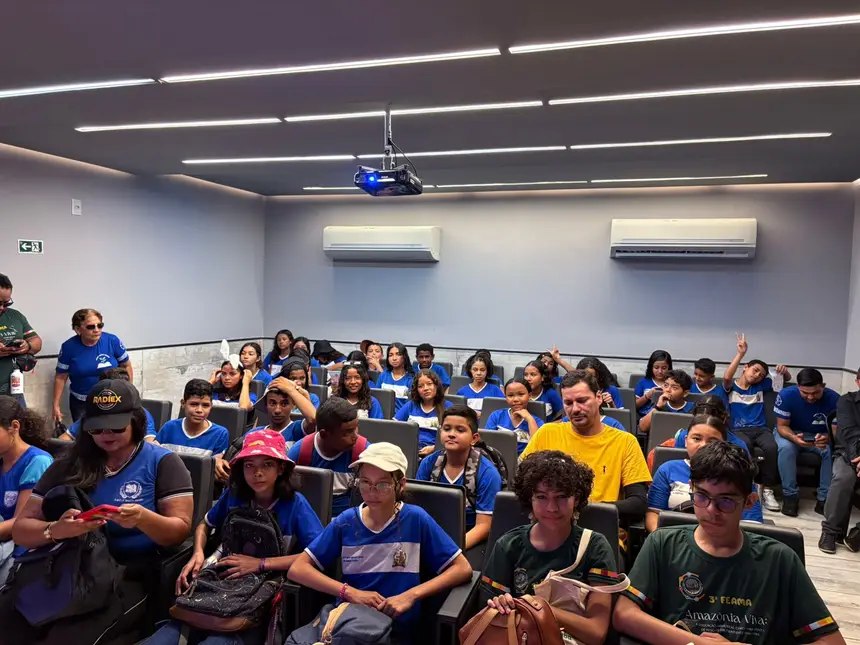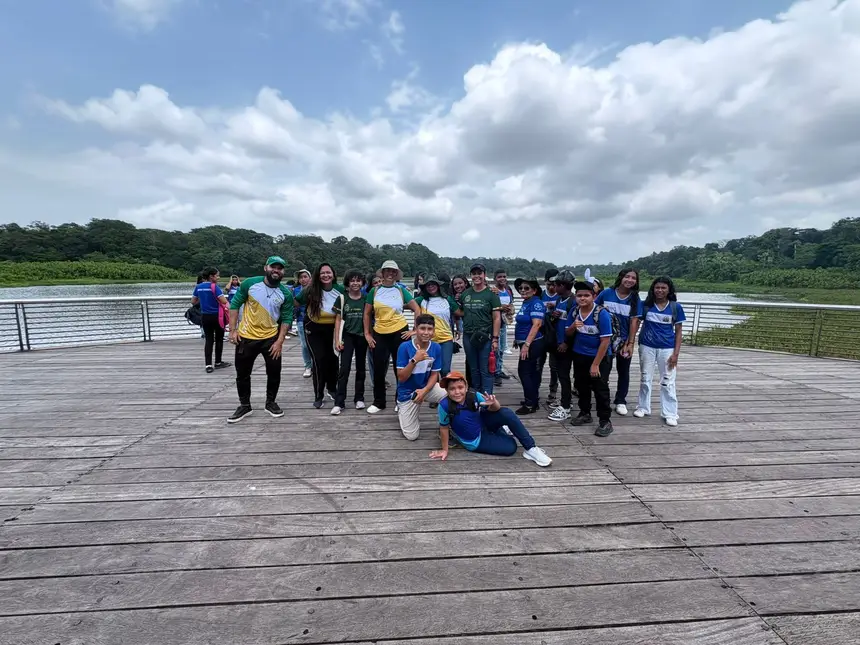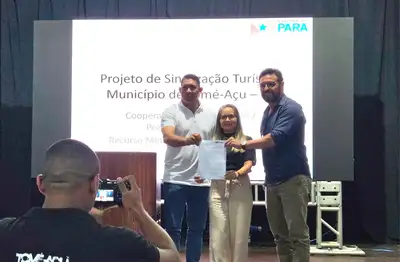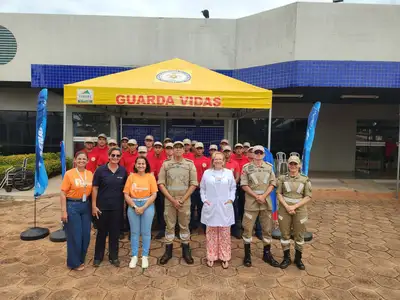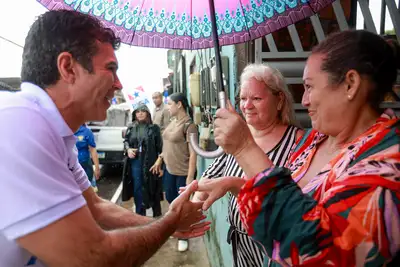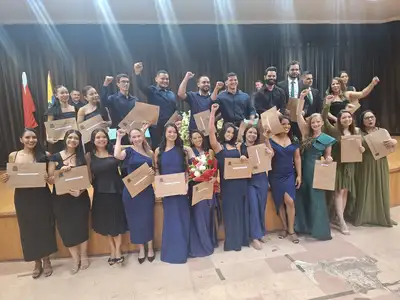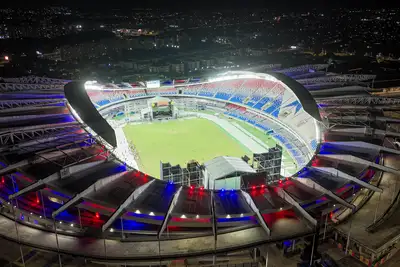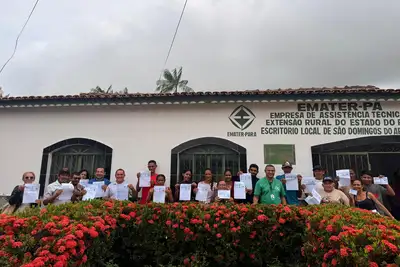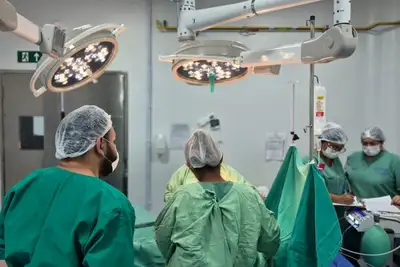Public school students from Marituba visit Utinga Park and Ararajubas Project
Students visited the aviary where there are currently 30 ararajubas undergoing acclimatization before being released into the wild.
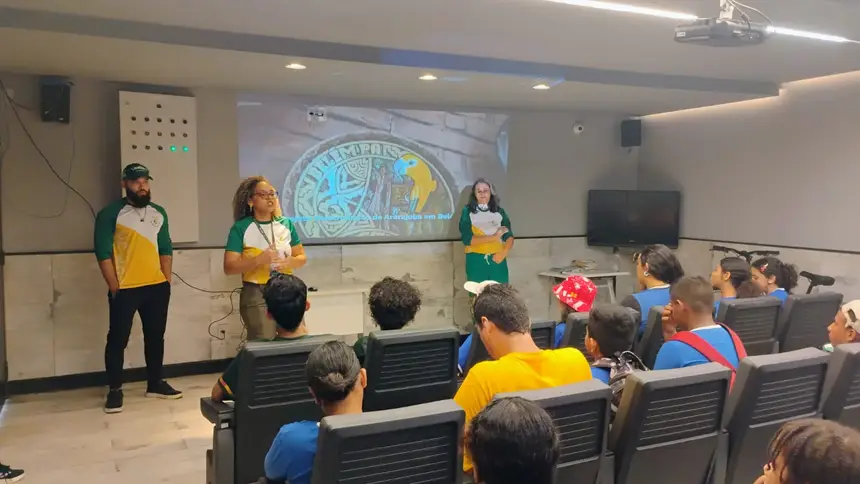
A group of 45 students and 10 teachers from the Municipal School Santo Amaro, in Marituba, Greater Belém, participated in a technical-pedagogical visit to the Utinga Camillo Vianna State Park and the Ararajubas Reintroduction and Monitoring Project on Thursday (23). The initiative is the result of collaboration between the Institute of Forest Development and Biodiversity of Pará (Ideflor-Bio) and the Education Department of Marituba.
On this occasion, the students visited the aviary where there are currently 30 ararajubas undergoing acclimatization before being released into the wild. For about six months, the animals undergo a period of adaptation to the climate, food, and Amazonian environment, learning to recognize native fruits such as açaí, muruci, and araçá. This preparation is essential for them to live freely and form new flocks in nature.
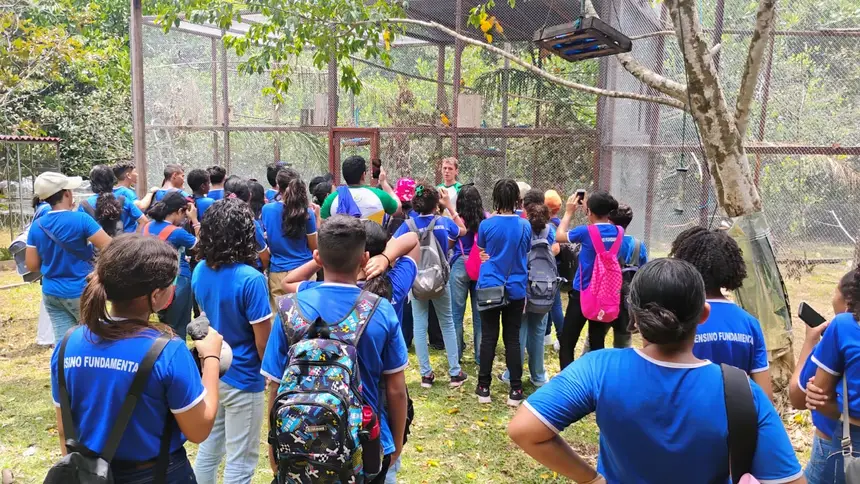
Ideflor-Bio emphasizes that during the COP30 period in Belém, another 30 ararajubas will be reintroduced into the wild, marking a historic milestone in the conservation of the Amazon. Since 2017, the project has already returned 58 birds to the wild, including chicks born in the Utinga State Park, which are considered "belenense jubinhas."
Learning - According to Ideflor-Bio's Biodiversity Manager, Mônica Furtado, the activity allowed students to learn more about the project and the conservation of fauna and flora. “This visit to the Ararajubas Project will help build their knowledge about the species that occur in the Amazon, especially in the state of Pará, preparing them for future tests,” she commented.
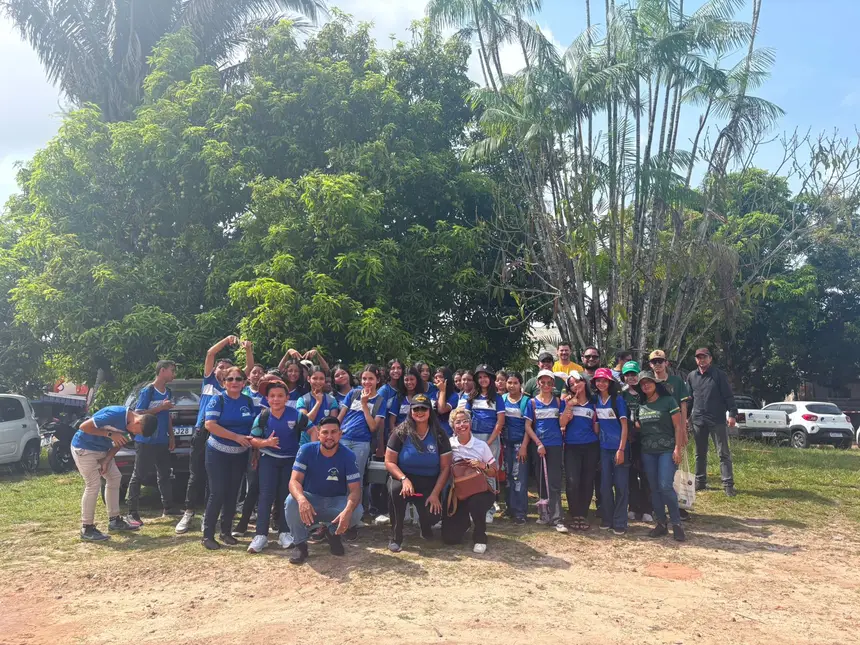
According to the coordinator of the Environmental Education Department of Semed, Professor Iramar Alves, “this experience was extremely enriching for our students, as it allowed them to learn, in practice, about the importance of conserving Amazonian fauna and flora. Visiting the Utinga State Park and closely observing the work developed in the Ararajubas Project awakened in them a sense of belonging and responsibility towards the environment. It is essential that environmental education is present in school experiences so that our children and youth become more conscious and committed citizens to the preservation of nature,” she emphasized.
Environmental Awareness - After the visit to the aviary, the students participated in a lecture about the project and environmental conservation, held in the auditorium of the Utinga State Park Reception Center. Mônica Furtado also emphasized that actions like this bring society closer and engage them more in the conservation of nature.
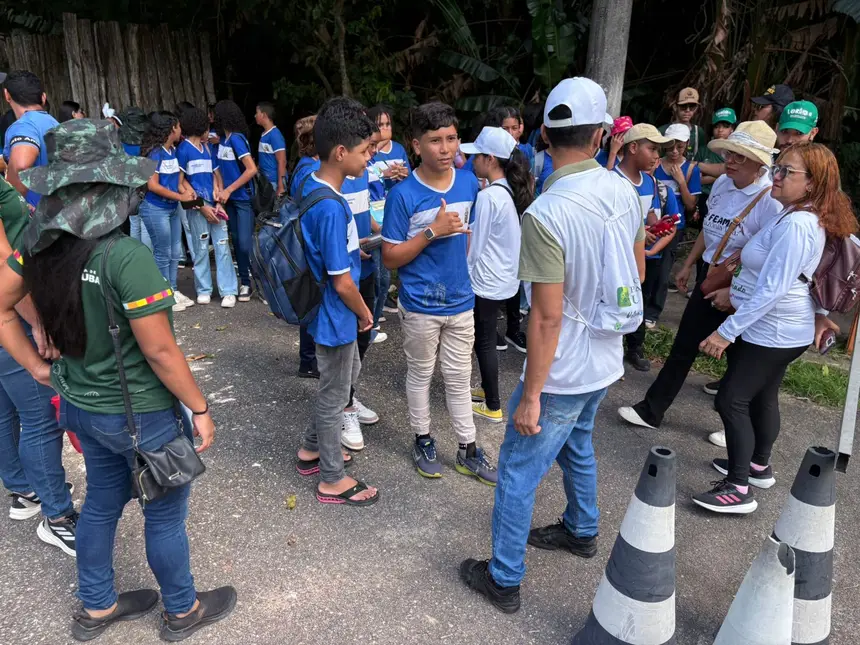
“Through the Ararajubas Project and other projects carried out by Ideflor-Bio, people come to know more about the conservation actions that have been taken in our state, and they also become part of our efforts to help preserve nature,” she added.
Text in collaboration with Sinval Farias (Ascom/Ideflor-Bio)



